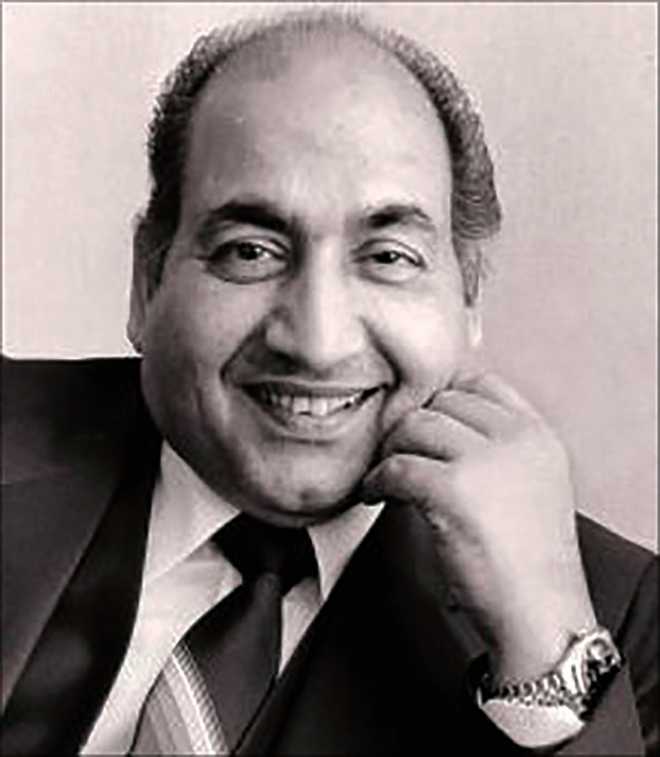Sumit Paul
Mohammad Rafi was born to sing. These words by Sahir Ludhianvi ring true even 94 years after the legendary singer was born on December 24 in 1924 at Kotla Sultan Singh village in Amritsar district of Punjab.
According to Sahir Ludhianvi, who was an atheist, Rafi’s divine voice had made him believe in the power of the supernatural being. That one day this poor boy would reach such dizzying heights of greatness was not expected even by his elder brother Hameed, who had mentored him.
The great singer never forgot his roots and preferred to converse in Punjabi. His first recorded song was in Punjabi: “Goriye ni heeriye ni teri yaad na aan” from Gul Baloch in 1944. Rafi would recite from Guru Granth Sahib written in Shahmukhi (Punjabi script written from right to left like Urdu unlike Gurmukhi, which’s written from left to right).
Such was his fascination for Punjabi that when in the late 1940s and early 1950s, he’d sing under composer Naushad Ali (from Lucknow) and poet-lyricist Shakeel Badayuni (Badayun from UP), Rafi’s Urdu would often carry remnants of his mother tongue. The duo would nudge him subtly that his Punjabi was surfacing unwittingly. The genial Rafi would tell them, ‘Maaf keejiyega janaab, Punjabi mere khoon mein hai, aur main sochta bhi Punjabi mein hi hoon’ (I’m sorry, but Punjabi runs in my blood and I also think in this language).
Even after all these years, Rafi’s popularity hasn’t dimmed at all. Au contraire, it has been increasing by the day. His numerous songs continue to enthral listeners. The range of his voice was incredible and he could sing any song with ease.
Rafi was unparalleled not only as a singer but also as a human being. He is known to have refused his fee when he came to know that the producers and composers couldn’t afford him. Never in his life did he haggle over remuneration. He instructed his secretary and brother-in-law Zaheer, “Jo jitna de, rakh leejiyega. Sawaal mat keejiyega. Muflis ho toh paise mat leejiyega” (Keep whatever one gives. Never question. If the person is poor, don’t take money from him). Such human beings are a rarity in our times. The lines of two songs that he sang so soulfully define his charisma: “Mujhko mere baad zamana dhoondhega” (Ek Naari Do Roop) and “Tum mujhe yoon bhula na paaoge” (Pagla Kahin Ka). Verily, we can never forget Mohammad Rafi. He’s forever ensconced in the hearts of lovers of music.









